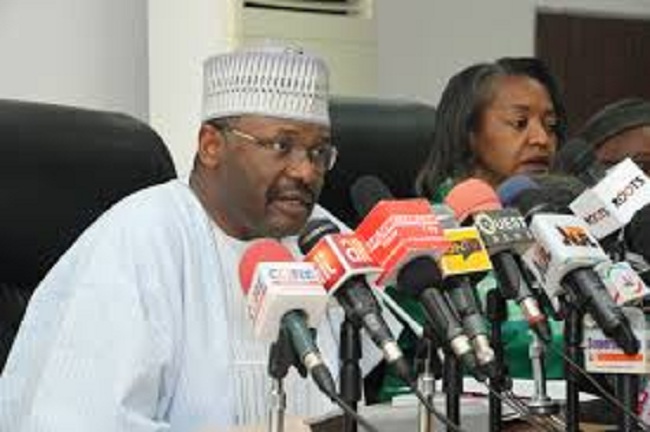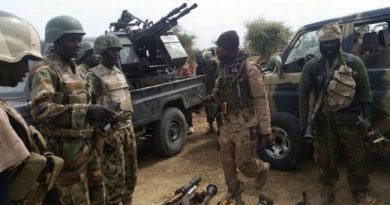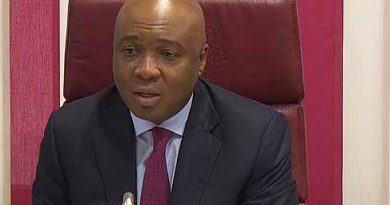Constitutional Amendments Alone Cannot Solve Electoral Challenges — INEC
The Independent National Electoral Commission (INEC) says constitutional and legal alterations and amendments alone cannot solve the challenges of the electoral process in the country. Mr Festus Okoye, the INEC National Commissioner and Chairman, Information and Voter Education Committee, said this at the Post 2019 General Elections Review Meeting with the Media on Monday in Lagos.
INEC “While it is right and rational to alter the constitution and amend the laws to take care of new, emerging and novel issues that may arise or have arisen and not contemplated or anticipated by the lawmakers, we must be careful not to fall into the trap of believing that every electoral challenge must be solved through constitutional or Electoral Act amendment. “We must acknowledge that constitutional and legal alterations and amendments alone cannot solve the challenges of the electoral process.
Reforms in the electoral process must include improvements in the administration and management of elections.
It must include a change in attitude by the major stakeholders in the electoral process and a commitment to play by the rules.” According to him, as the country looks forward to off-season elections, the media, civil society organisations, political parties, the executive and the legislature must tease out areas of the Constitution that are problematic, ambiguous or where we have lacuna.
He said that such areas should be harvested, turned into bills and presented to the National Assembly for legislative action. Okoye said that the commission had carried out and was still carrying out in-house review of the 2019 elections, urging all stakeholders to do the same. He said that the commission had flagged a few problematic constitutional and electoral issues that the Nigerians should pay attention to in shaping and reshaping the electoral process.
The INEC commissioner advised the stakeholders to lead the debate on the desirability, workability, viability and utilitarian value of some of the suggestions for legislative and constitutional intervention.
Okoye said that the commission was interested in participants’ views on the adequacy or otherwise of the constitutional and legal framework for registration and regulation of political parties. “Should the number of political parties be regulated through legislative intervention or should a threshold be set on the conditions for their getting on the ballot?
“Should the National Assembly take a second look at the conditions for the de-registration of political parties as spelt out in section 225(A) of the Constitution?
“Are the conditions for de-registration of political parties adequate? “The possibility of shortening the timelines provided for the activation of the courts and disposal of all pre-election matters as provided in section 285 of the constitution.
“Should Nigeria adopt full electronic voting and transmission of results or should the country adopt a duality that allows for manual voting and electronic transmission of results?
“Should the country have a separate Electoral Offences Commission and Tribunal to handle the issues of arrest, investigation and prosecution of all electoral offences?”
Okoye said that the commission would no doubt harvest issues and implement needed reforms within its mandate and would remain focused. He said that the commission would remain open to ideas and new challenges, urging the media to assist it in reshaping the electoral landscape to make for the conduct of free and transparent elections.
The Commission needs the support of the media in reshaping the perception of the Nigerian people relating to its intentions and its ability, courage and willingness to conduct good elections.
“The ability of the media to play this role also depends on its understanding of the intricate issues in the electoral process.
“We urge the media to see the commission as a worthy ally in the patriotic duty of giving the Nigerian people a good election,” Okoye said.
NAN reports that the event was attended by the NUJ, line editors and producers from various media organisations, INEC National Commissioners and directors, among others.



